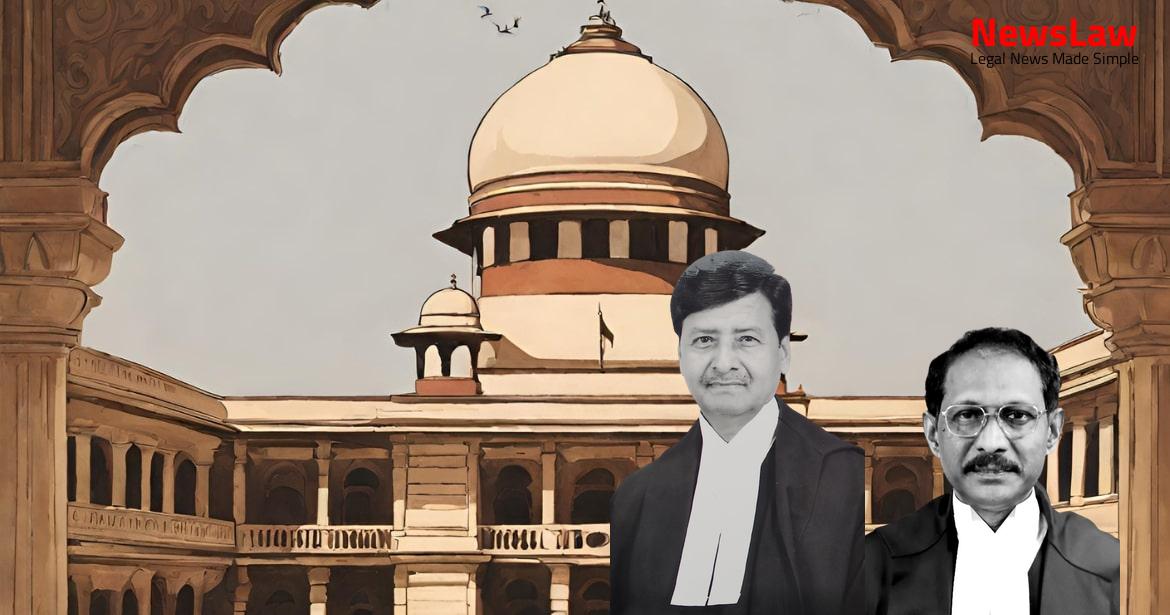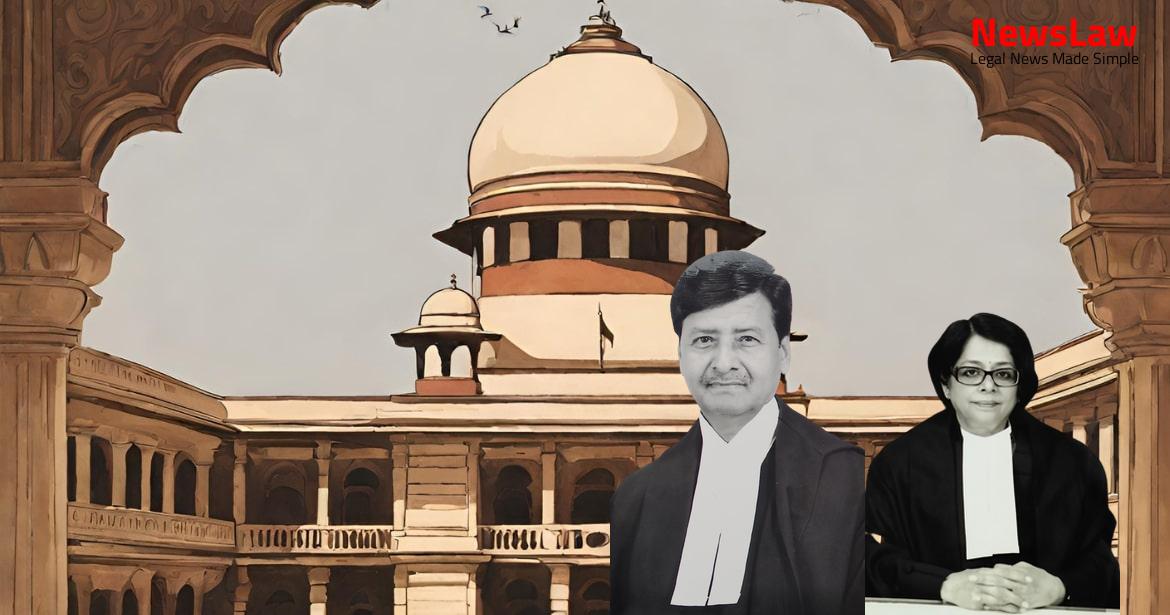In a recent case, the Land Tribunal’s decision to grant occupancy rights to a claimant was upheld by the High Court after thorough legal analysis. The court examined the evidence of possession and cultivation, procedural compliance, and the distinct purposes of relevant Acts. Find out how the court’s ruling clarified the scope and application of the law in determining occupancy rights under the Land Reforms Act, 1961. #LandTribunal #OccupancyRights #LegalAnalysis
Facts
- The instant appeal is challenging the High Court judgment affirming the Land Tribunal’s decision to grant occupancy rights to the first respondent for specific lands.
- The first respondent claimed tenancy rights under the Karnataka Land Reforms Act, 1961 for Sy. No. 184 and Sy. No. 17.
- The Tribunal initially rejected the first respondent’s application, but after several legal challenges and remittances, it ultimately granted occupancy rights based on evidence of possession and cultivation.
- The appellants contended that the first respondent was a trespasser, not a tenant, and had no right to claim occupancy under the Act 1961.
- The Land Tribunal, based on previous proceedings and the possession status on the vesting day of March 1, 1974, granted occupancy rights to the first respondent.
- The High Court upheld this decision, finding no manifest error by the Tribunal warranting interference.
- Witnesses and documents were presented, and the Tribunal conducted an inquiry following the prescribed procedures.
- The appellants’ defense was based on their purchase of the land from Venkataramaiah, but it was established that the first respondent and his father had lawful possession and cultivation rights on the vesting day.
Also Read: Admission Deadline Adherence in Medical Courses
Issue
- Under the Act, the Tribunal must inquire into whether the lands claimed by the applicant have vested in the State Government under Section 44 of the Act 1961.
Also Read: From Nominee to Disqualified: Supreme Court Scrutinizes Age Evidence, Declares Election Invalid
Arguments
- The learned counsel for the appellants argued that the first respondent does not have the right to file an application in Form No 7.
- The first respondent is unable to justify his right to be the tenant under the Act, 1954 in the earlier proceedings.
- The first respondent claimed ownership rights over the subject land under the Act, 1954 but failed to establish them
- The first respondent cannot later claim to be the tenant of the subject property under the Act 1961
Analysis
- Under the scheme of the Acts, the purpose and scope of the Inams Abolition Act, 1954 and the Land Reforms Act, 1961 are distinct.
- The purpose of the Inams Abolition Act was to abolish inam tenures and convert them into ryotwari tenure, whereas the Land Reforms Act aimed to abolish the relationship of landlord and tenant and confer occupancy rights on tenants.
- The rejection of a claim under the Inams Abolition Act does not negate the possibility of claiming occupancy rights under the Land Reforms Act.
- The Act of 1961 vests only agricultural lands held by or in possession of tenants prior to 1 March, 1974, in the State Government, determining the rights of tenants with reference to the date of vesting.
- The High Court ruled that denial of rights under the Act of 1954 does not affect the claim for occupancy rights under the Act of 1961 as they have different scopes and purposes.
- The termination of proceedings under the Act of 1954 does not prevent an enquiry to establish a claim under Section 45 of the Act of 1961 by the Land Tribunal.
Decision
- The appellants challenged the Tribunal’s finding before the High Court through a writ petition under Article 226 of the Constitution.
- The High Court and the writ appeal affirmed the order of the Land Tribunal, upholding occupancy rights for the first respondent.
- After revisiting the records, both courts determined no manifest error was made in the Tribunal’s findings.
- The appeal was dismissed with no costs, and any pending applications were disposed of.
- There was no need for further interference by the Court regarding the occupancy rights granted to the first respondent.
Case Title: PILLAMMA (DEAD) Vs. H. RAMAIAH REDDY (DEAD) (2022 INSC 803)
Case Number: C.A. No.-010299-010299 / 2011



